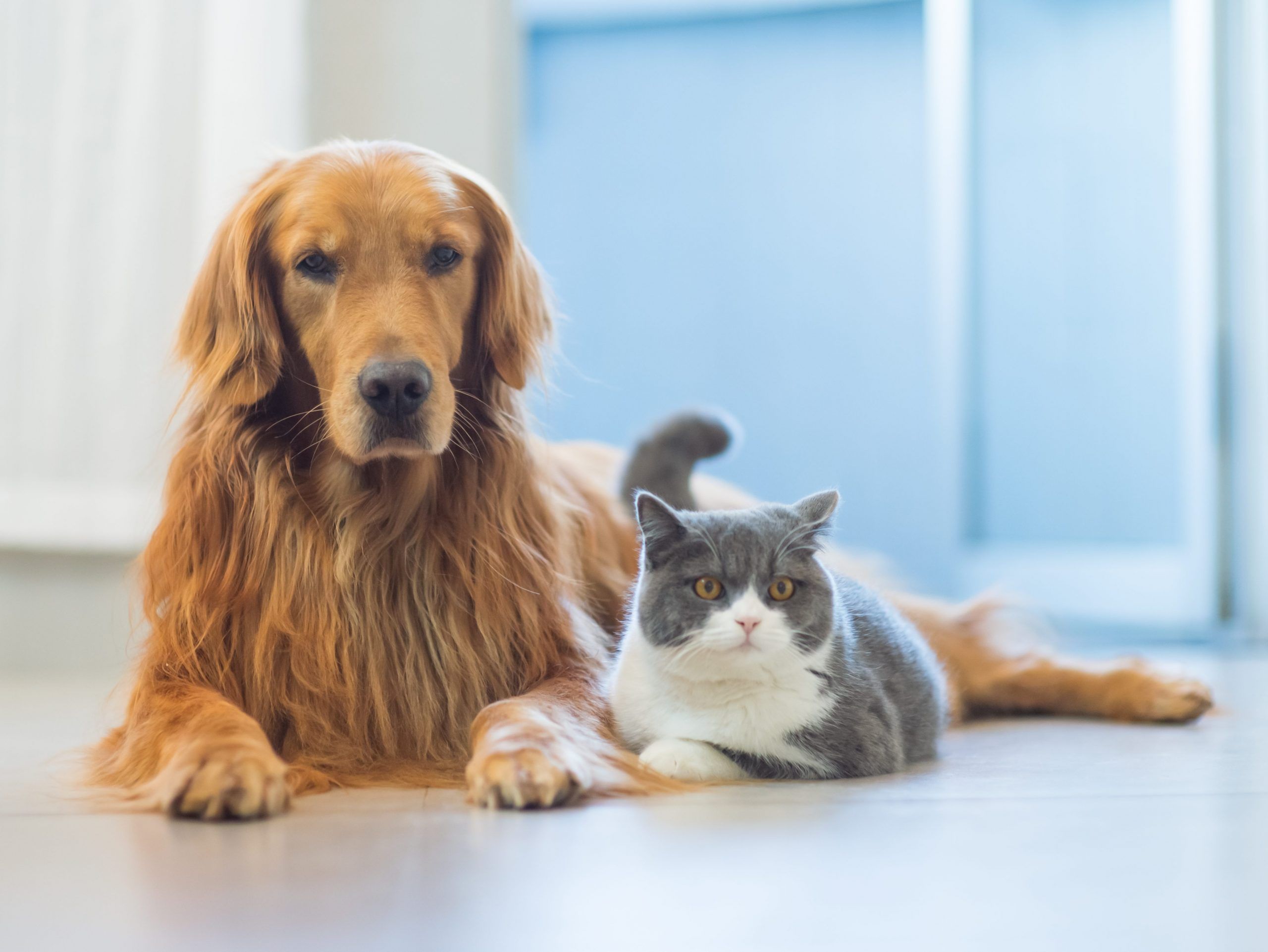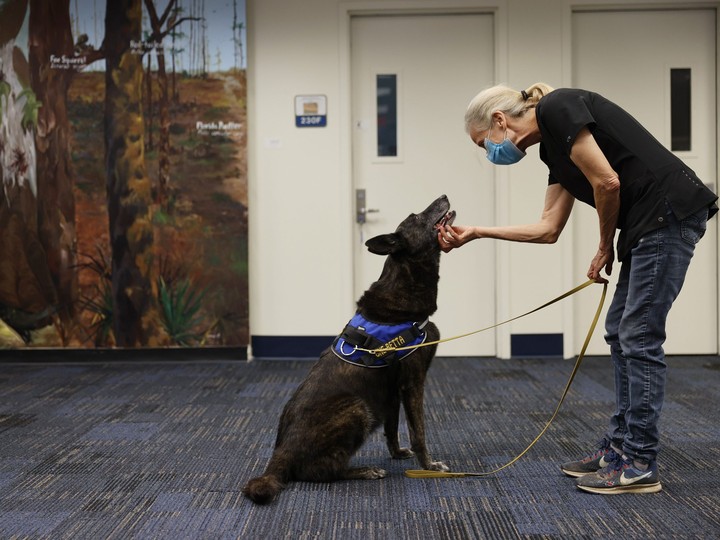miami heat let the dogs out.
the nba team allowed fans back into the american airlines arena thursday night for their game against the los angeles clippers. the limited number of fans who attended the game were greeted by covid sniffer dogs as part of the arsenal of precautions put in place.
“during the nba bubble is really when we started researching, in earnest, how we could bring back fans safely into the arena,” matthew jafarian, miami heat’s executive vice president for business strategy,
told cnn
.
a k-9 handler stands with a specially trained dog that detects coronavirus in people at the american airlines arena prior to the nba basketball match between miami heat and the la clippers in miami, on january 28, 2021. – miami heat fans were able to watch their team’s game live for the first time at an nba game since the pandemic began in march of last year, thanks to dogs trained to detect covid-19.
chandan khanna/afp via getty image
“we looked at a variety of options. there were breathalyzer tests that we looked at. we looked at traditional diagnostic tests, like rapid antigen and pcr tests. and we thought through operationally how we could administer that to hundreds and thousands of people coming into the building.”
fans are asked to line up as the dogs walk past. if one of the dogs sits beside a guest, they will be refunded their ticket and denied entry to the stadium.
“if you or anyone in your travel party is signaled by a canine, all members of the party will not be permitted to enter the arena,” the team released as part of the
sniffer-dogs faq
. if a guest has an aversion to coming into close contact with one of the dogs, they may take a rapid antigen test which takes approximately 45 minutes to process.
 4 minute read
4 minute read










